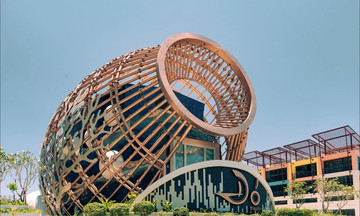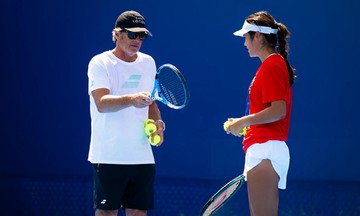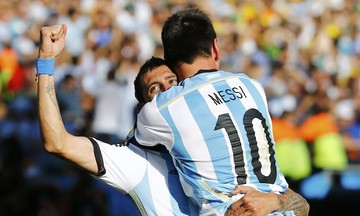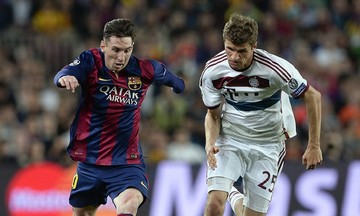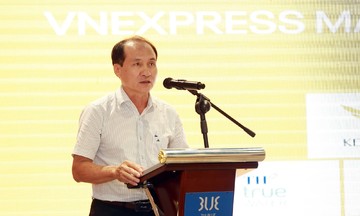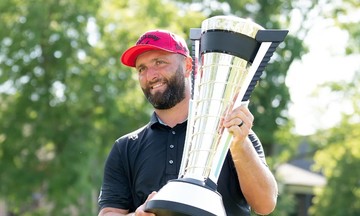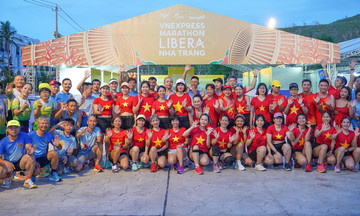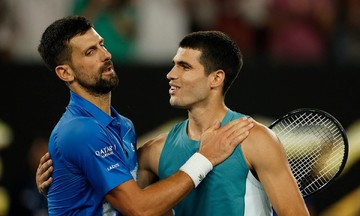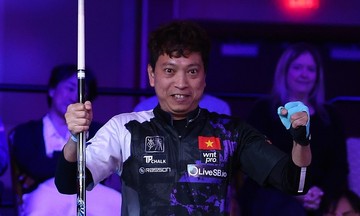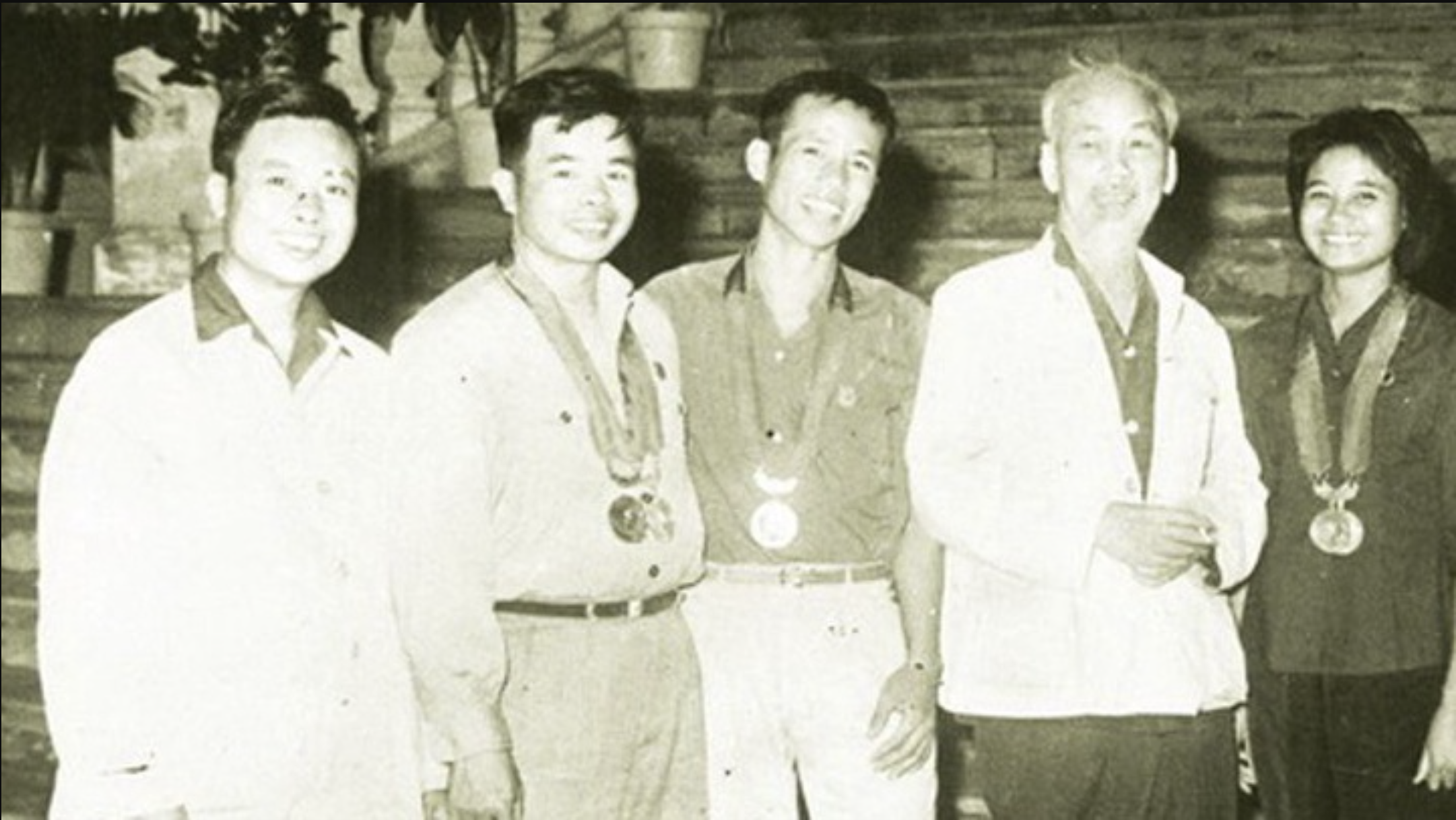 |
In 1962, Vietnam had its first world record holder, shooter Tran Oanh. He won the socialist bloc military shooting championship in Czechoslovakia and broke the world record in the revolver category with 587 points (the previous record was 586 points).
This was a rare milestone for Vietnamese sports during a period of limited training conditions and equipment. The achievement put Vietnam on the international shooting map and inspired many generations of shooters. Tran Oanh later continued to win major titles in continental competitions and was recognized by the International Olympic Committee as "Vietnam's outstanding athlete of the 20th century".
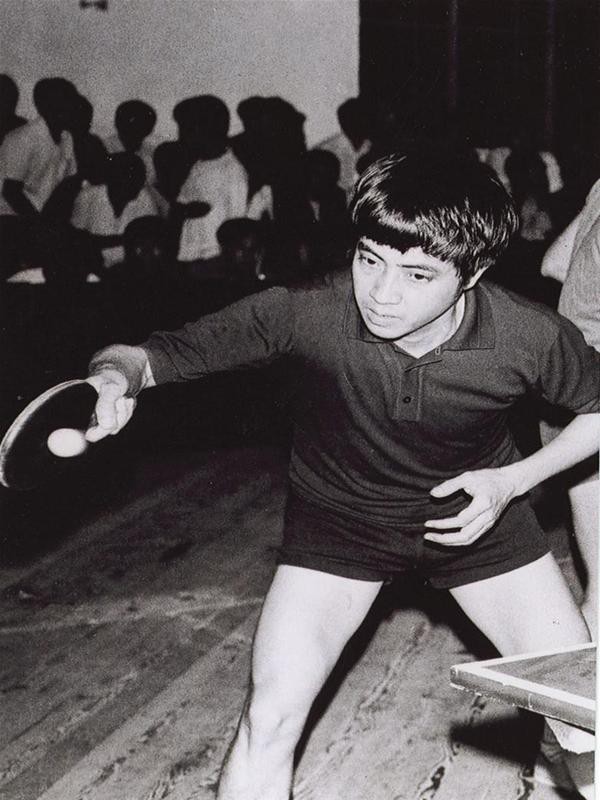 |
In 3/1978, Quy Nhon (Binh Dinh) hosted the National Table Tennis Championship, the first national sporting event after the reunification of the country. The tournament brought together many players from both North and South Vietnam, including big names from the North like Nguyen Ngoc Phan, Hoang The Vinh, and from the South like Vuong Chinh Hoc.
The men's singles final between Nguyen Ngoc Phan and Vuong Chinh Hoc was considered "historic", closing the period of dispersed competition and opening a unified playing field for Vietnamese sports. Ngoc Phan ultimately won.
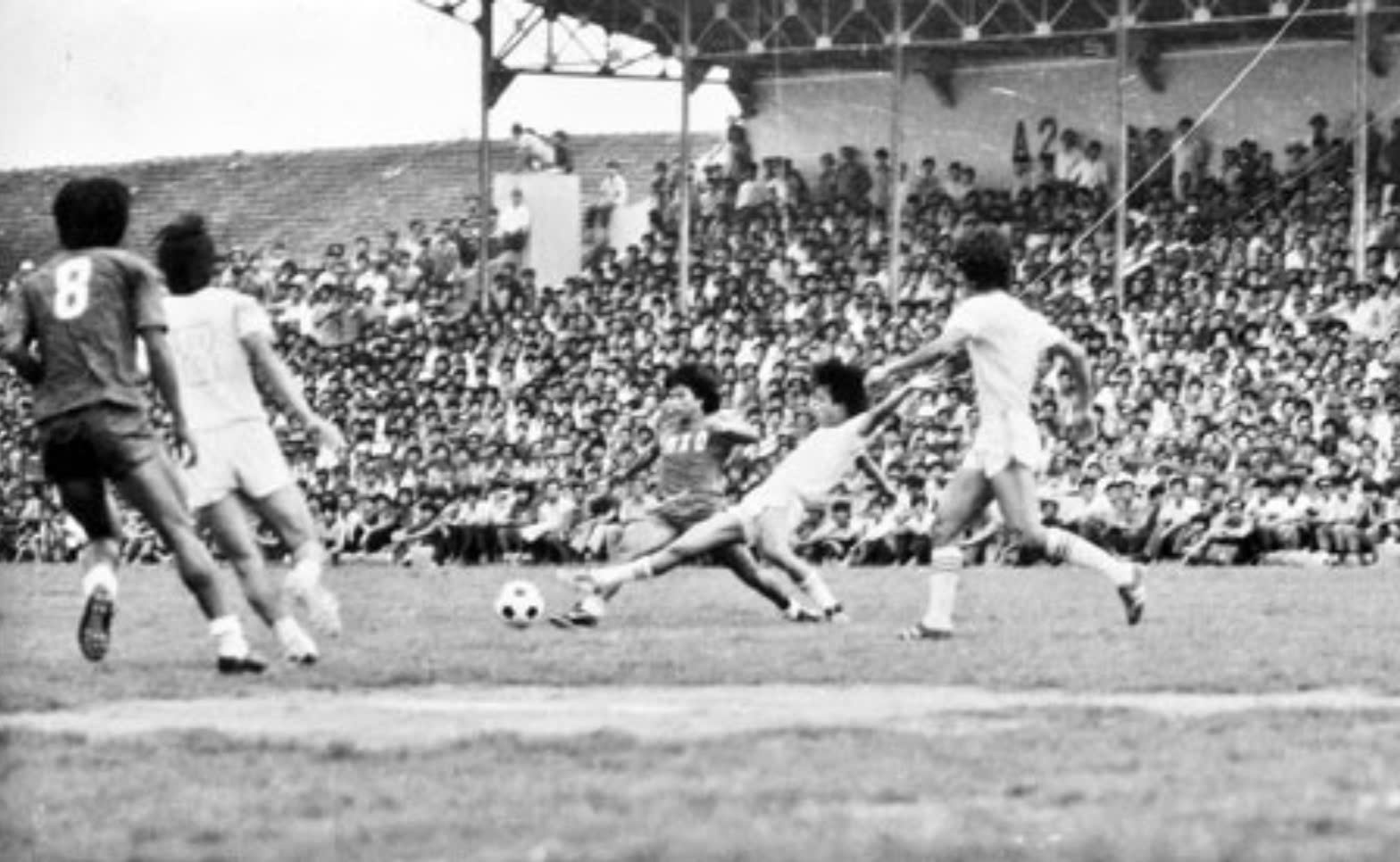 |
In 1980, Vietnam organized the first national A1 football championship, which the Railways Department won. From the A1 foundation, Vietnamese football entered a period of management renewal and turned professional from the 2000-2001 season. Since then, clubs have used foreign players, and domestic players can also earn a living from football.
The organizational system was also transferred to Vietnam Professional Football Joint Stock Company (VPF) in 2012. These changes contributed to raising the level of the national team in Southeast Asia and gradually progressing to Asia with tournaments such as the Asian Cup, Asiad, and World Cup qualifiers.
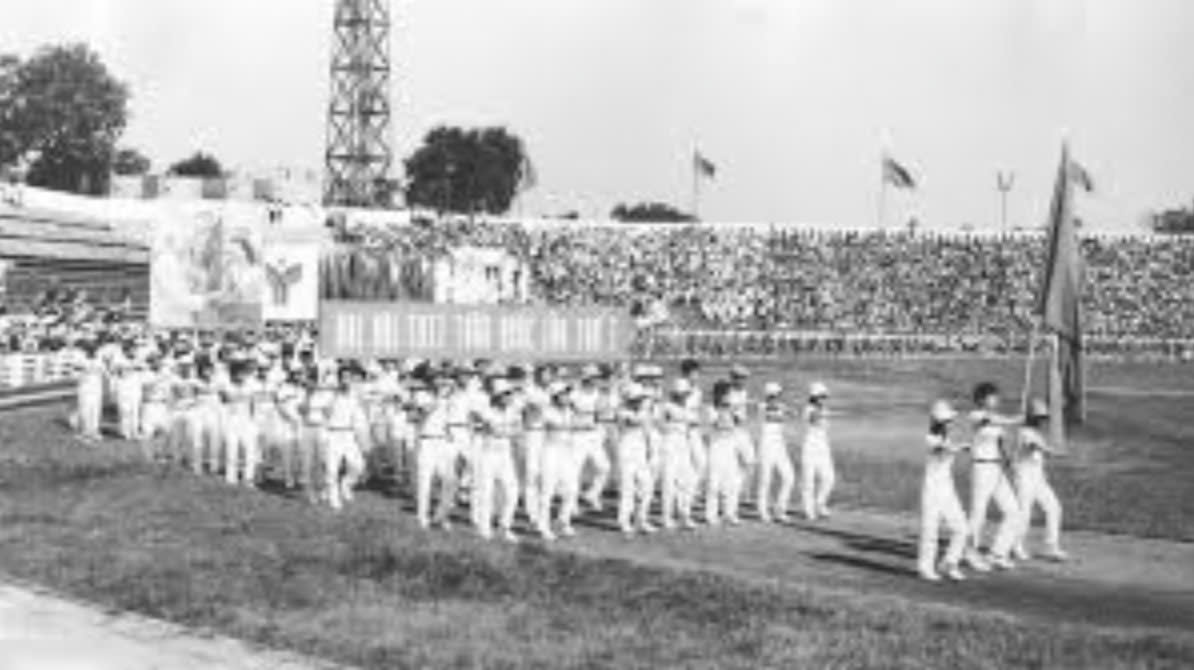 |
From 22/9 to 29/9/1985, Hanoi hosted the first National Sports and Physical Training Congress. This was Vietnam's first multi-sport congress. Nearly 1,900 athletes competed in 15 sports, setting dozens of new national records. Ho Chi Minh City ranked first overall, followed by Hanoi and the Army.
The event marked the formation of a "benchmark" for high-level sports movements at the provincial and city levels, which was organized periodically later (from 2002 it switched to a 4-year cycle). The congress serves as the final selection event for the SEA Games, Asiad, and other international sports competitions.
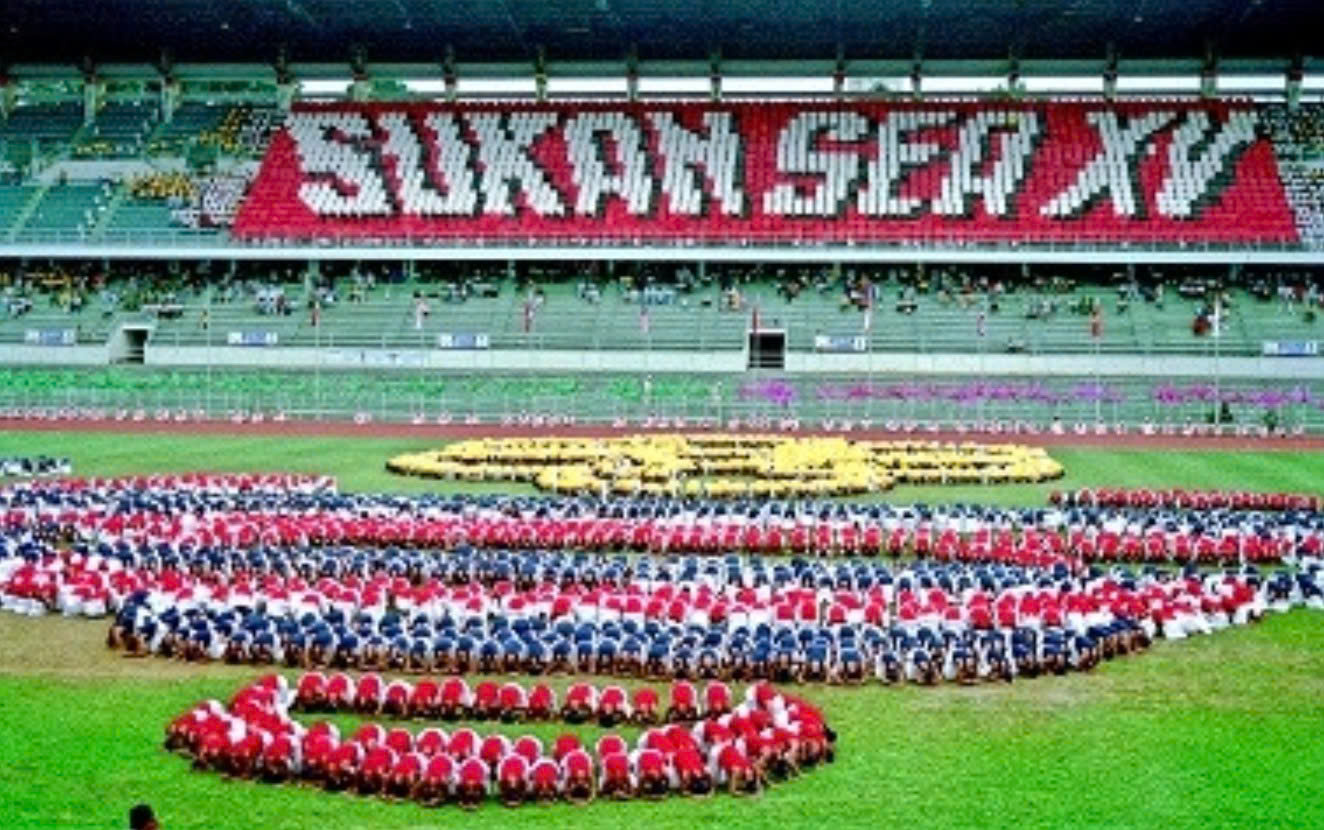 |
The 1989 SEA Games in Kuala Lumpur, Malaysia marked the reintegration of Vietnamese sports after a long absence. The delegation brought 46 athletes, competed in 8 sports, and won 19 medals (3 gold, 11 silver, and 5 bronze), ranking seventh out of nine delegations.
Notably, shooting accounted for 14 of the 19 medals, including all 3 gold medals. Shooter Ngo Ngan Ha won the individual gold medal in the standard air rifle and contributed to the team gold medal. The remaining five medals came from table tennis (3 silver) and boxing (2 bronze).
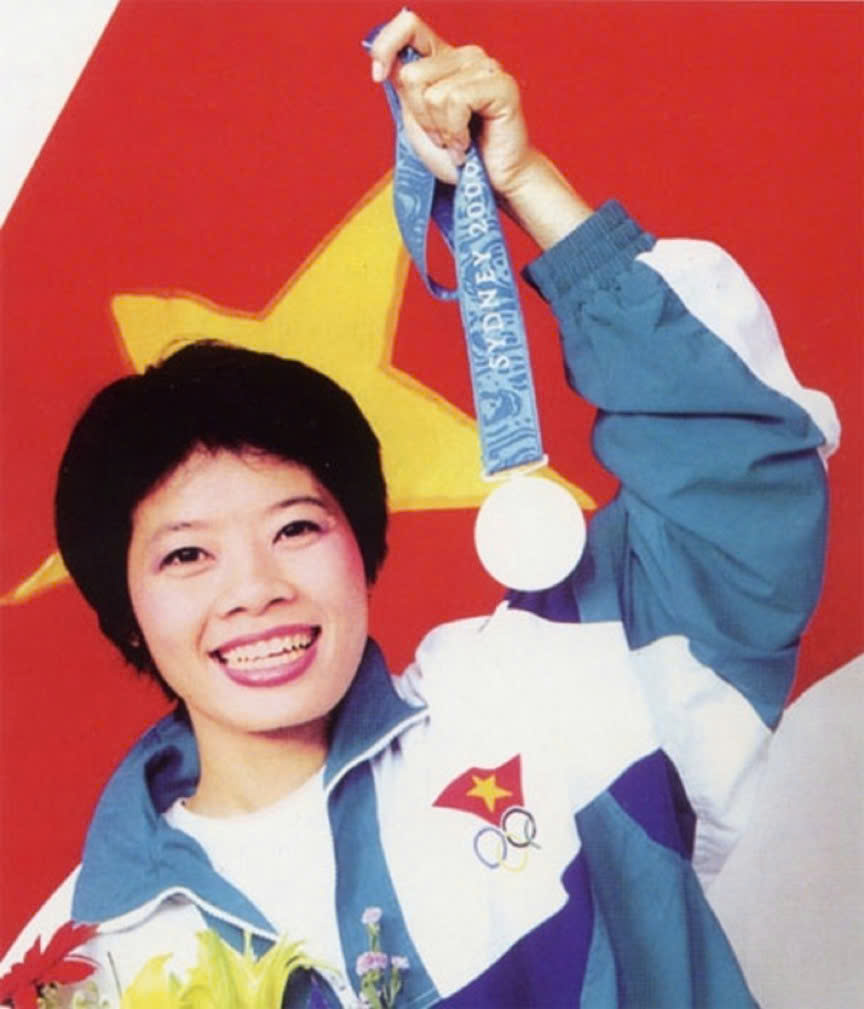 |
On 28/9/2000 in Sydney, Australia, martial artist Tran Hieu Ngan won a silver medal in taekwondo (under 57 kg category), becoming the first Vietnamese athlete to win an Olympic medal.
Having practiced martial arts since the age of 13, Hieu Ngan started taekwondo in 1987 when Tuy Hoa opened a talent class for this martial art. With her early talent, Hieu Ngan began to win medals in national competitions and was called up to the national team. Representing Vietnam, Hieu Ngan won SEA Games gold medals, Asian championships, and Asiad bronze medals before achieving her Olympic feat.
After Sydney 2000, Hieu Ngan retired but remained involved with taekwondo as a coach. Since then, Vietnamese taekwondo has not yet produced another female athlete who can match her achievements in the Olympic arena.
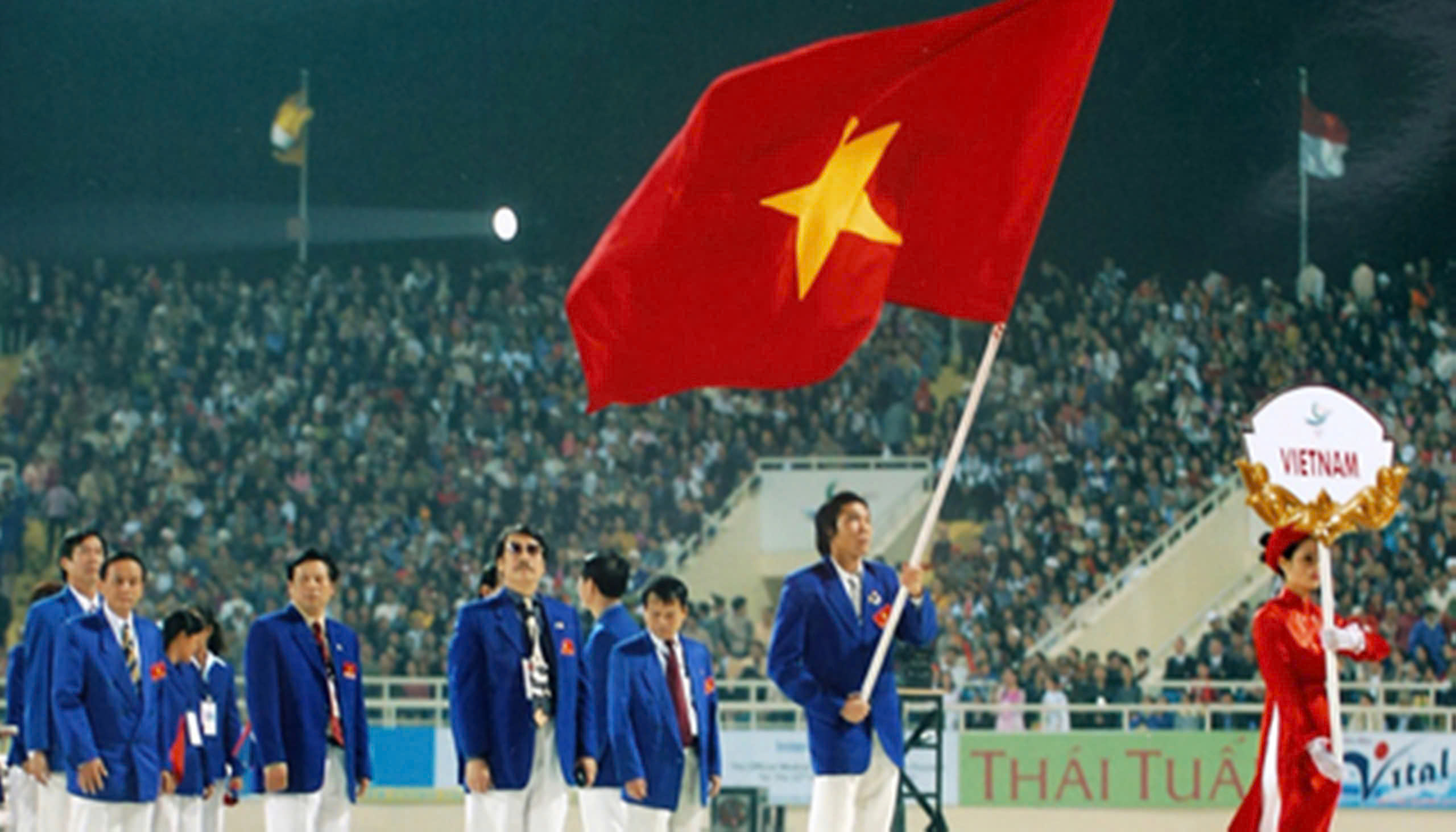 |
In 12/2003, Vietnam hosted the SEA Games for the first time, held simultaneously in Hanoi and Ho Chi Minh City. This was the first time the Games were held in two cities more than 1,500 km apart. The opening ceremony took place at My Dinh Stadium, with the torch lit by wushu athlete Nguyen Thuy Hien.
Vietnam topped the medal table with 158 gold, 97 silver, and 91 bronze medals. The host's achievement was better than the combined total of the two teams ranked below, Thailand and Indonesia.
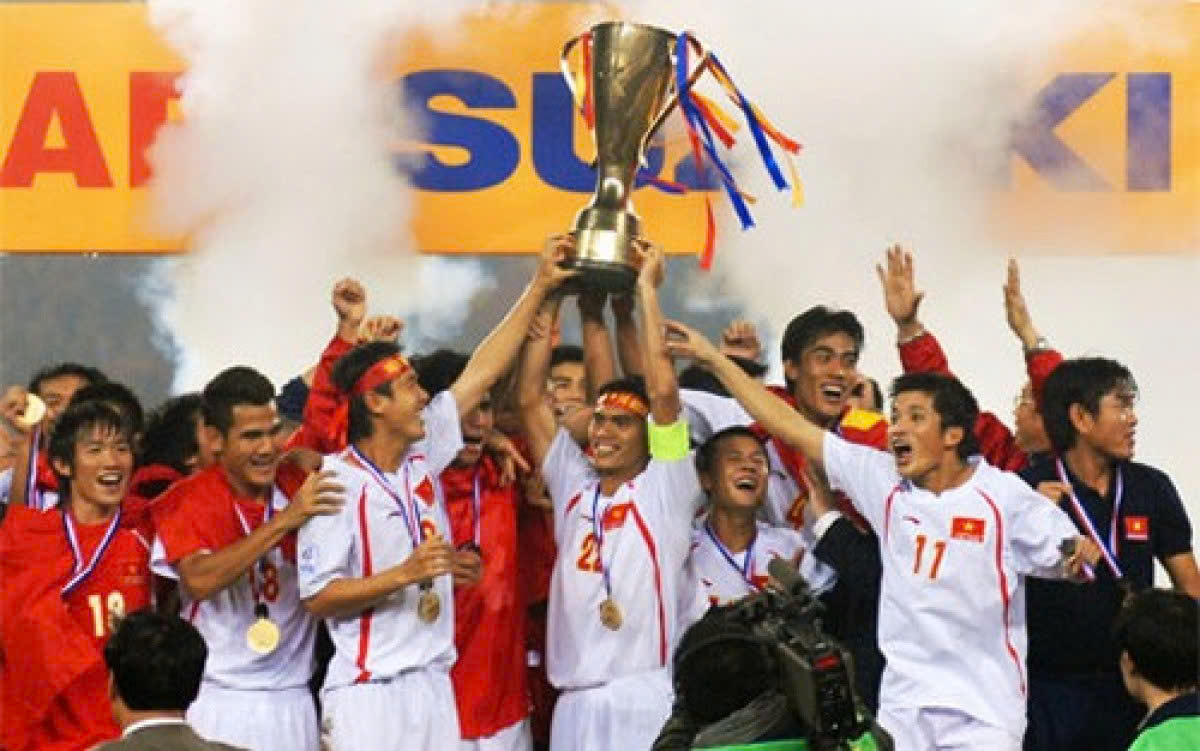 |
In 12/2008, the Vietnamese men's football team won the Southeast Asian championship for the first time after two final matches against Thailand. The iconic moment was striker Le Cong Vinh's backward header in injury time at My Dinh Stadium, securing a 1-1 draw (3-2 aggregate).
The 2008 championship ended a long "gold medal drought" for Vietnamese men's football. Players like Cong Vinh, Le Tan Tai, Nguyen Minh Phuong, and Duong Hong Son became the first "golden generation" to reach the regional summit. Cong Vinh's goal remains one of the most important moments in Vietnamese football history.
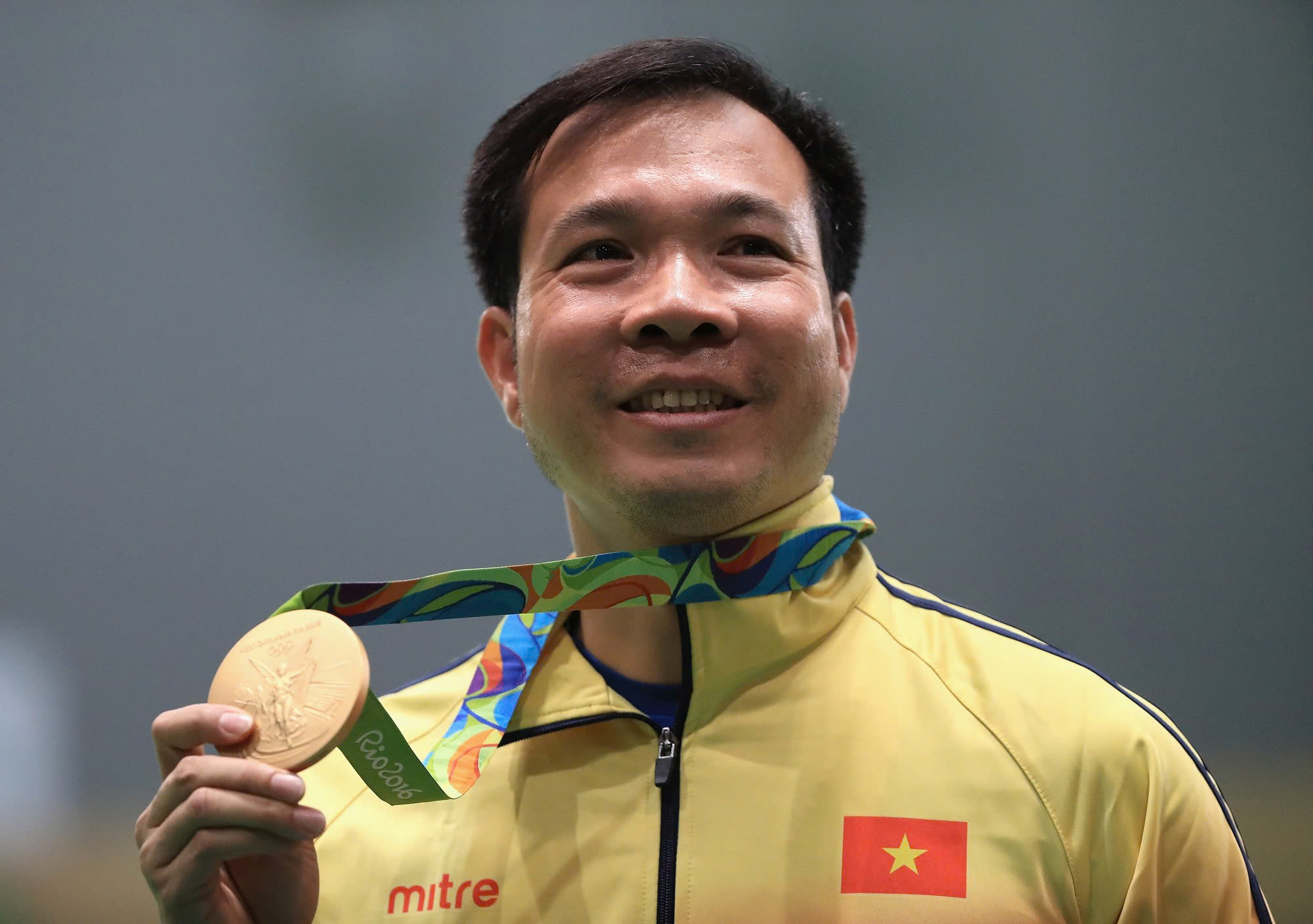 |
On the morning of 7/8/2016, Hanoi time, shooter Hoang Xuan Vinh won the gold medal in the men's 10m air pistol at Rio de Janeiro, Brazil, becoming Vietnam's first Olympic champion. His final shot of 10.7 points helped him surpass the host country's competitor by just 0.2 points, creating one of the most dramatic finals in shooting.
This achievement affirmed Vietnam's position in shooting after more than half a century since Tran Oanh's time. At the same 2016 Olympics, Xuan Vinh also won a silver medal in the 50m pistol.
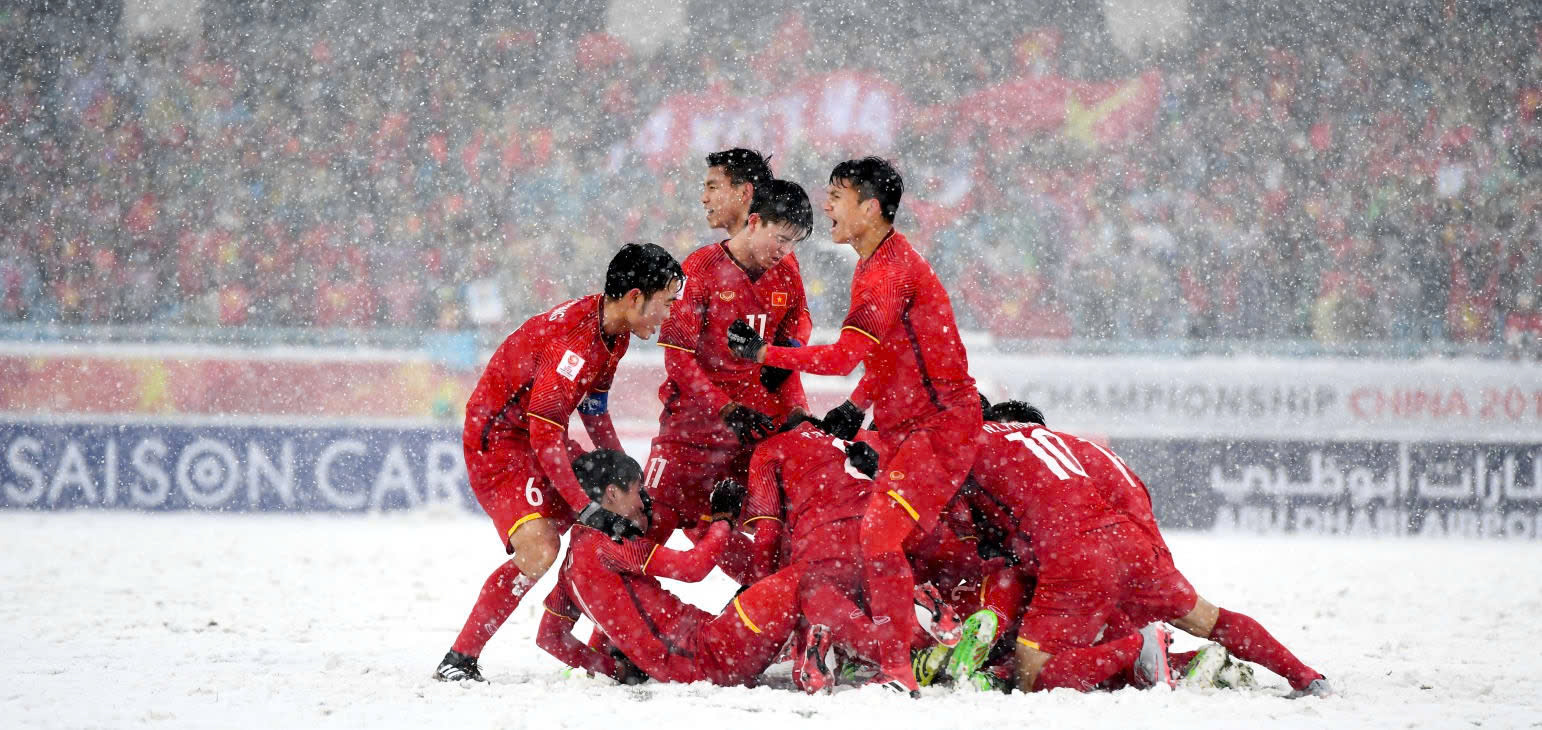 |
On 27/1/2018, Vietnam played in the U23 Asian Cup final for the first time in Changzhou City (Jiangsu Province, China), competing in a blizzard against Uzbekistan. A goal at the end of extra time gave Uzbekistan a 2-1 victory, but the journey of coach Park Hang-seo and his team changed the continent's view of Vietnamese football.
On the way to the final, Vietnam eliminated Iraq and Qatar, both on penalties. The final became a symbol of fighting spirit and adapting to harsh conditions. The image of hundreds of thousands of people celebrating across the country after each match created a special social effect. This laid the groundwork for the subsequent achievements of the U23 and national teams at the 2018 Asiad, 2018 AFF Cup, and 2022 World Cup qualifiers.
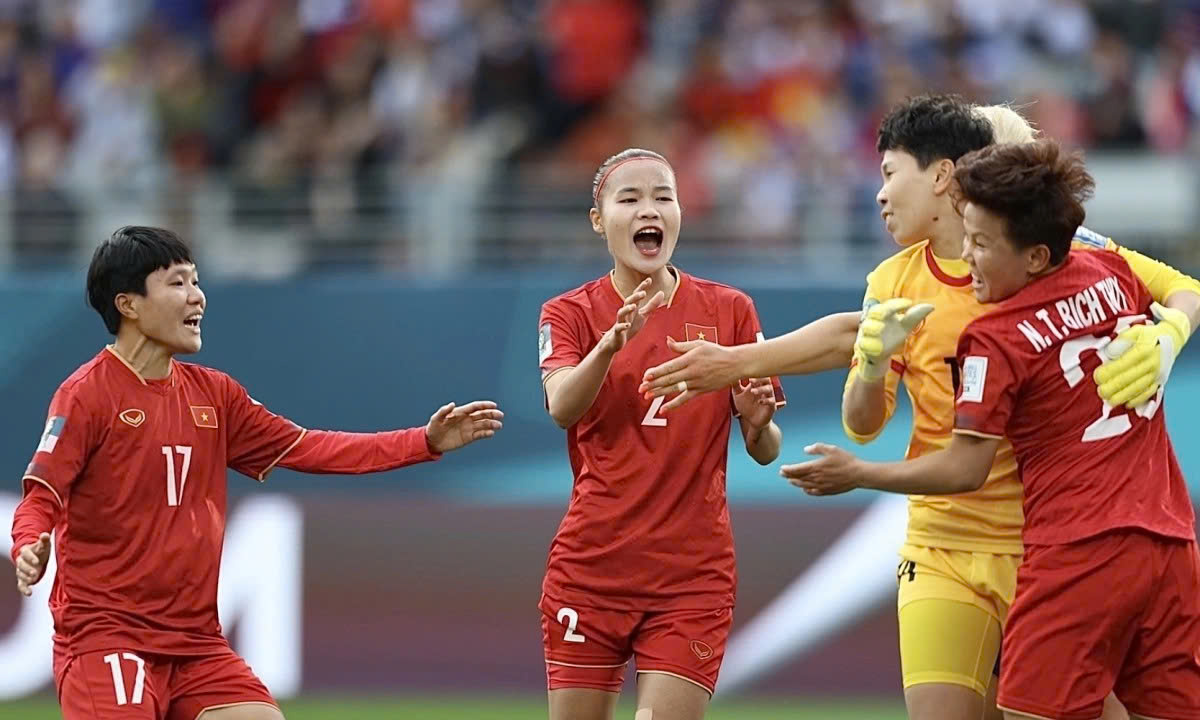 |
In 2023, the Vietnamese women's football team participated in the Women's World Cup for the first time in Australia and New Zealand. This was the first time Vietnamese football participated in a World Cup at the senior level in 11-a-side football.
Coach Mai Duc Chung's team finished the tournament with three losses against the USA, Portugal, and the Netherlands, failing to score any goals and conceding 12.
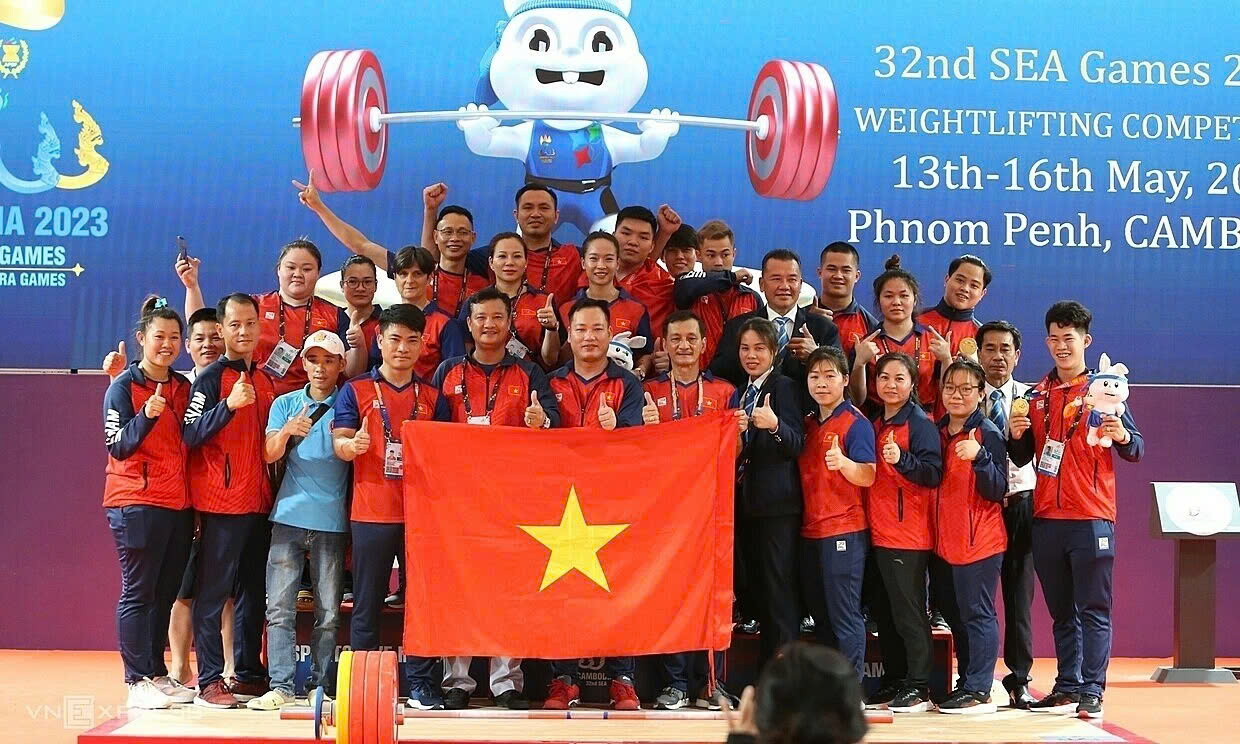 |
In 5/2023 in Phnom Penh, Cambodia, the Vietnamese delegation won 136 gold, 105 silver, and 114 bronze medals, topping the overall medal table away from home for the first time in SEA Games history.
This is an important measure of consistent competitive ability, not dependent on home advantage, and reflects the breadth of achievement in many sports. This victory also affirms that Vietnamese sports have risen to the top of the region, 80 years after its beginnings.
Compiled by Hoang An
Photos: Tien Phong, Thanh Nien, VFF



